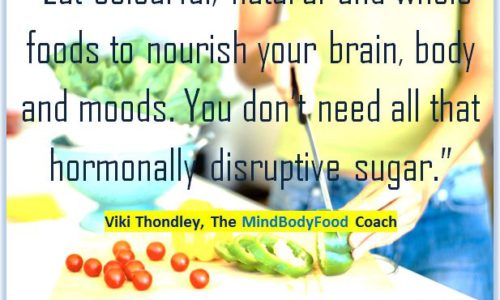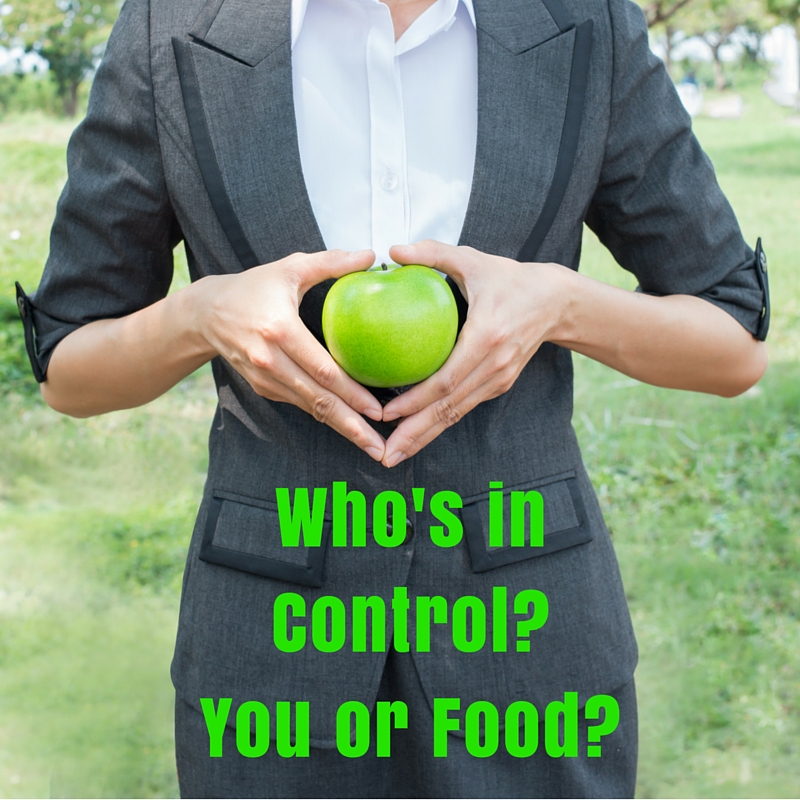
Mind or Body Cravings?
In previous blog posts I’ve explained how when we restrict and deny nourishment to our body (dieting), we often wrestle with cravings (also tiredness and mood swings) until the brain overrides our willpower and has us reaching for a quick fix of fat, sugar and salt.
Hunger and cravings are two different sensations. The body regulates our hunger, while the mind wields greater power over food cravings.
Hunger serves a more functional purpose, signalling our brains that it’s time to eat and replenish the energy and information we’re running low on. To recap previous articles about the hunger cycle, stomach hunger begins with a hormone called ghrelin. When our bodies have burned up the food in our stomachs and our blood sugar and insulin levels begin to drop, ghrelin communicates with the hypothalamus in the brain, which triggers the release of neuropeptide Y to stimulate our appetite.

As we begin to chow down, another process happens to counter that hunger feeling in order to keep us from gorging ourselves.
First, the fat tissues expel the hormone leptin. This chemical tells our brains that our bodies are satisfied and we can stop eating. It does so by turning down the production of neuropeptide Y and cranking up levels of proopiomelanocortin, an appetite suppressant, in our bloodstream.
The hypothalamus also monitors our insulin and blood sugar levels to ensure that we’ve eaten enough to bring those levels back up.
Since this process doesn’t happen instantaneously, we may feel uncomfortably stuffed after finishing a large meal, especially if we’ve wolfed it down in-between emails at our desk.
Things get a little more complicated when food desires move from the stomach to the brain. Think of Veruka Salt from Charlie and the Chocolate Factory with her famous phrase, “I want it now!”
Far more elaborate and complicated, mind hunger isn’t entirely necessary for survival. In fact, scientists have largely debunked the theory that food cravings are our bodies’ ways of nagging us that we need a specific type of nutrient. That is, unless you consider pizza and ice-cream to contain valuable nutrition.
So why do people generally crave items high in fat and calories?
The answer lies in the brain. Fatty, sugary foods release chemicals called opioids into our bloodstream. Opioids bind to receptors in our brains and give us feelings of pleasure, and even mild euphoria. Momentarily at least, we are super happy for ingesting that caramel cheesecake or lemon tart.
Managing Food Cravings
Suppressing food cravings can prove a Herculean task; like trying to get the lyrics of that overplayed radio song out of your head, the longing for chocolate cake with sweet vanilla frosting can haunt you for hours.
Limiting your caloric intake through dieting can be a tricky business because your body naturally generates more ghrelin, the hunger hormone, when it thinks you’re in danger of starvation. That kick-starts your appetite, which can then open up a Pandora’s box of cravings.
Eating psychology teaches us it is instructive to mindfully give in on occasion; however the key is limiting the frequency.
In a six-month study on the effects of calorie restriction in regard to weight loss, the participants who satisfied their food cravings the least lost the most weight. Significantly, they didn’t quash every craving, but they learned to manage them.
An interesting aspect of dieting and food cravings is that the calorie restriction isn’t the sole contributor for a spike in daydreams about salt and vinegar chips or tim tams. Rather, research indicates that anxiety or boredom surrounding dieting is more to blame. For that reason, many of us in the know advocate the importance of real food seasonal variety within your daily food intake over restrictive dieting of any kind.

Helpful tips to manage your cravings:
- Firstly, identify your true hunger: Is it physical, emotional, boredom or mind cravings?
- If it’s physical, eat real food.
- If it’s emotional have a big cry, write down your worries or phone a friend.
- If it’s boredom, distract yourself and start focusing on something else – it helps to have a pre-written list of activities to distract you when necessary.
- If it is really more about mind hunger and cravings, then allowing yourself the pleasure occasionally is ok but learning how to manage your cravings with real food substitutes is far better. Try to create the mouth feel, taste sensation and pleasure you would receive from your craving food without the fear of adding to your waistline.
Now is the perfect time to remember the benefits of mindful eating and awareness.
Viki xo
About Viki
Viki Thondley is a Mind-Body Wellness Specialist and qualified Holistic Counsellor, Food, Stress & Lifestyle Coach, Meditation Therapist, and Eating Disorder Recovery Coach who inspires women to shift from dieting and restriction to whole-self nourishment, self-care and healing. Recovered from bulimia nervosa and the many years of hormonal imbalances, food prison and self-sabotaging behaviours’, Viki is an inspiring coach, speaker and event host who also provides personalised holistic programs, workshops and retreats to instil self-love, happiness, body confidence and real food freedom. She is author of “Achieving Your Wellness: Create a Life You Love” and “Healthy Chocolate Delights: Real Food Sweet Treats”.
Sign up to her Happy | Healthy | Confident newsletter for her free 43 page eBook “Break Up with Dieting: 10 Tips to Calm Your Mind, Relax Your Body & Eat With Pleasure” + weekly whole-self nourishment tips, inspiration and recipes!



